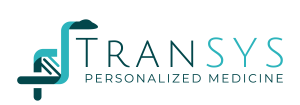Systems health approaches, rooted in an in-depth comprehension of the intricate networks within biological systems, offer a compelling framework for integrating public health and precision medicine paradigms. Researchers can unveil critical insights that inform the development of population-level interventions and individualised therapeutic strategies by conducting sophisticated analyses of the dynamic interactions among genetic determinants, biological pathways, and health phenotypes. The active involvement of patients in this process is indispensable, as it provides essential perspectives on the interpretive nuances and ethical considerations surrounding genetic risk assessment. This collaborative exchange ensures healthcare interventions’ cultural relevance and personalized nature, fostering proactive engagement and trust within healthcare systems. Consequently, combining systems health principles with patient engagement is a potent catalyst for advancing public health initiatives and precision medicine interventions, promoting more equitable and impactful healthcare outcomes across diverse populations.
Patient group involvement in EC research projects
Ritchie Head Ceratium BV
Patient group involvement in EC research projects. Patients and their families are often strong advocates for action. This can include providing disease expertise and support to de-risking research and development, funding, and links to patient and clinician communities. Patient groups can join as beneficiary partners and receive grant funding for work on project tasks or contribute to advisory panels.
Effective precision health serving the needs of diverse patient populations
Hanna Boëthius 5P Health Care Solutions
While progress has been made in recent years towards integrating patient perspectives into research and healthcare decision-making, several areas can benefit from further attention and enhancement. Patient advocacy groups could be involved at earlier stages of research project planning and design to ensure that studies are patient-centred from inception. This can help identify research priorities that align closely with patient needs and preferences. Enhancing communication channels between researchers, healthcare professionals, and patient advocacy groups is essential for fostering trust and collaboration. Transparent information sharing about research processes, findings, and potential implications is crucial for informed decision-making. Establishing ongoing evaluation and feedback mechanisms can help ensure that patient advocacy involvement remains effective and impactful. This includes soliciting input from patient representatives on implementing initiatives and incorporating their feedback to drive continuous improvement. By addressing these areas of improvement, patient advocacy involvement in systems health initiatives and precision medicine can be further strengthened, ultimately leading to more patient-centred and inclusive healthcare practices.
Beyond the Score: Navigating Polygenic Risk in Healthcare
Lara Andreoli TranSYS KU Leuven Belgium
Unlocking Precision Medicine: Synergizing Genetic Insights, Patient Engagement, and AI for Ethical Healthcare Advancements
Hélène Antoine-Poirel Sciensano (National Health Institute Belgium)
By integrating genetic information captured by PRS with insights from systems health approaches, researchers gain a deeper understanding of the complex interplay between genetic factors, biological systems, and health outcomes. Patient involvement enriches this research by providing valuable perspectives on genetic risk assessment’s relevance, interpretation, and ethical considerations. Moreover, AI technologies enable the scalable analysis of large datasets, facilitating the development of predictive models incorporating genetic and systems-level data. Patient advocacy groups play a crucial role in this ecosystem by advocating for patient-centred research practices, ensuring equitable access to genomic technologies, and promoting transparency in AI-driven healthcare decision-making. Together, these synergistic efforts contribute to advancing precision medicine initiatives that are both scientifically robust and ethically sound, ultimately aiming to improve health outcomes for diverse patient populations.

